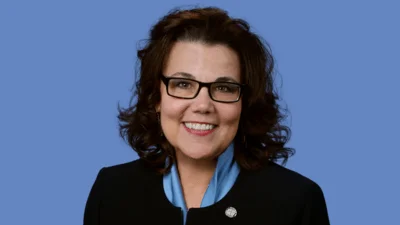The City Council recently approved changes to the Saginaw DDA bylaws to create an official board position for a student. Government for Tomorrow, an organization led by 16-year-old Founder & CEO Liam Dreyer, will assist in the selection, training, and support for the student selected. We sat down to talk to Liam about Government for Tomorrow and how the program works.
(2/3) “Our process is broken into three different steps. The first step is us going to a community that has very few or in most cases, zero, student positions in their local government. We'll present about how we can help and the merits of involving youth in these types of organizations at various local government boards, typically downtown development authorities, parks and recreations or libraries.
Then, after meeting with various heads, the student position is created. That's step one of the process and probably the easiest.
The second step is to head into schools and try to convince students to apply for this type of position. A lot of students are familiar with community service, but this is a different type of community service than the ones that they're familiar with.
Let's say they're a part of the National Honor Society, which would require maybe something like five hours every month of community service. That is a different reason for serving your community, as opposed to wanting to see it develop or the reason to bring an unprecedented voice into public discourse.
When students can understand that they can actually have some sway in their community, there is the spark of enthusiasm that is so much greater than any type of obligation for other types of volunteering, if it's required. It's quite incredible. We see where communities will get many, many applications for just one position.
Then we have to have a selections committee, comprised of two people who volunteer for Government for Tomorrow, community leaders, and then normally, one or two people from whatever board has the student position. Then they examine the applications which were submitted, not based off of the credentials of their GPA, or extracurriculars, but on how motivated the student is to be involved in their community. They have to have that burning passion, that desire to represent their peers, and to be involved in their local government. That is what our selections committee is looking for.
Then the selection committee will interview around 25% of those who applied. They pick one student to recommend to the board that has created the student position. We've never had it where the board that created the student position doesn't go along with our recommendation.
Once they’ve accepted the recommendation, the student is officially appointed to the local government board. At this moment, the student normally makes history as one of the youngest people in their community, or the youngest person in their community, to ever serve on a local government board.”
—Liam Dreyer, Government for Tomorrow
Original source can be found here.


 Alerts Sign-up
Alerts Sign-up